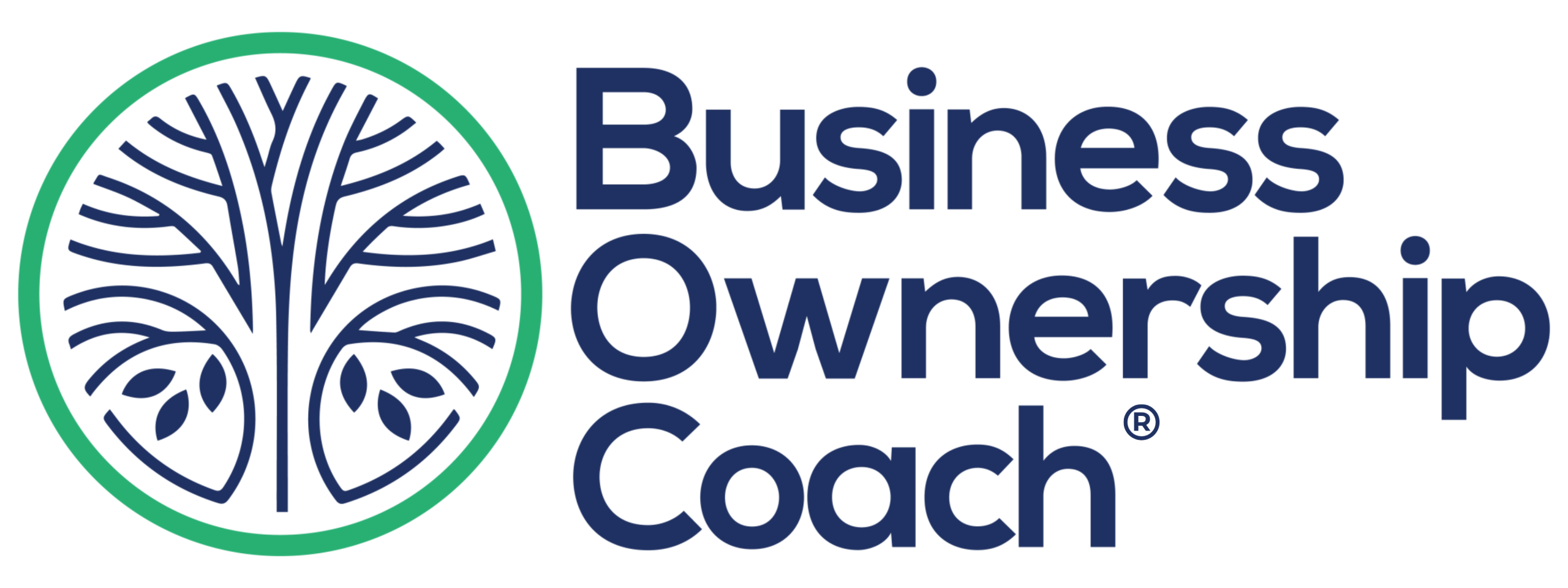Why a Business Ownership Coach Recommends Vending as Your Gateway to Financial Freedom
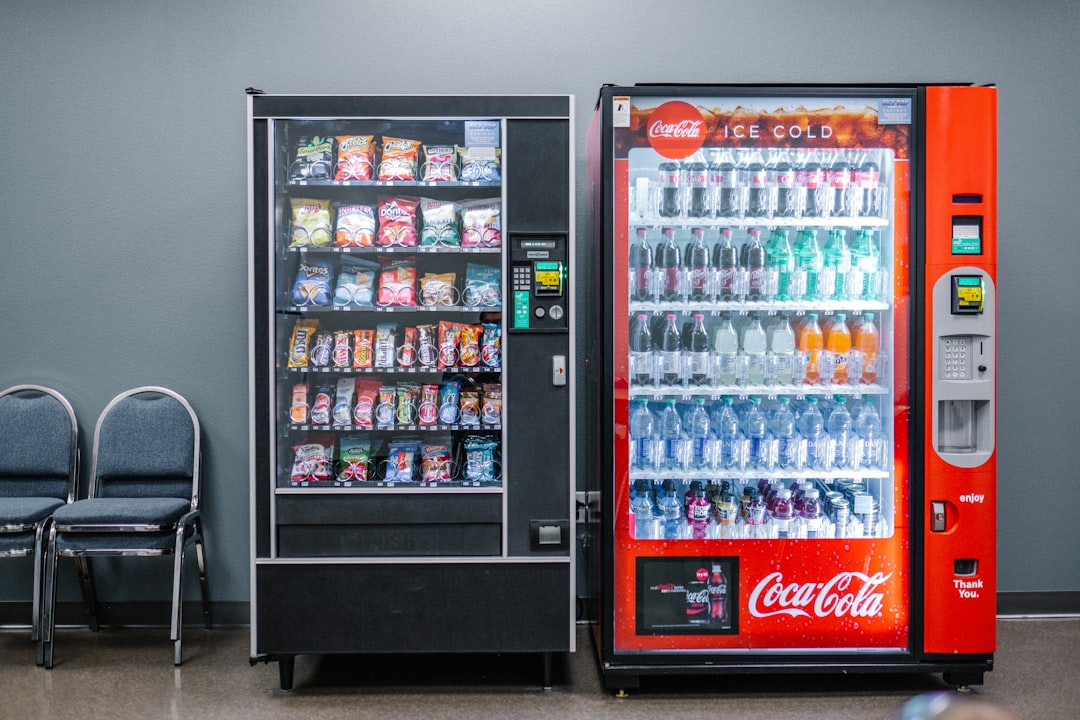
Photo by catrina farrell on Unsplash
Are you dreaming of escaping the 9-to-5 grind and stepping into business ownership but unsure where to start? The vending machine industry could be your perfect entry point. As a seasoned Business Ownership Coach, I’ve seen firsthand how vending serves as a “Gateway Business”—a low-cost, semi-passive venture that you can manage alongside your current job and scale into a full-time income. In this article, I’ll walk you through why vending is an ideal business to launch, how SBA financing makes it accessible, and the strategies you can use to turn it into a reliable source of cash flow and financial freedom.
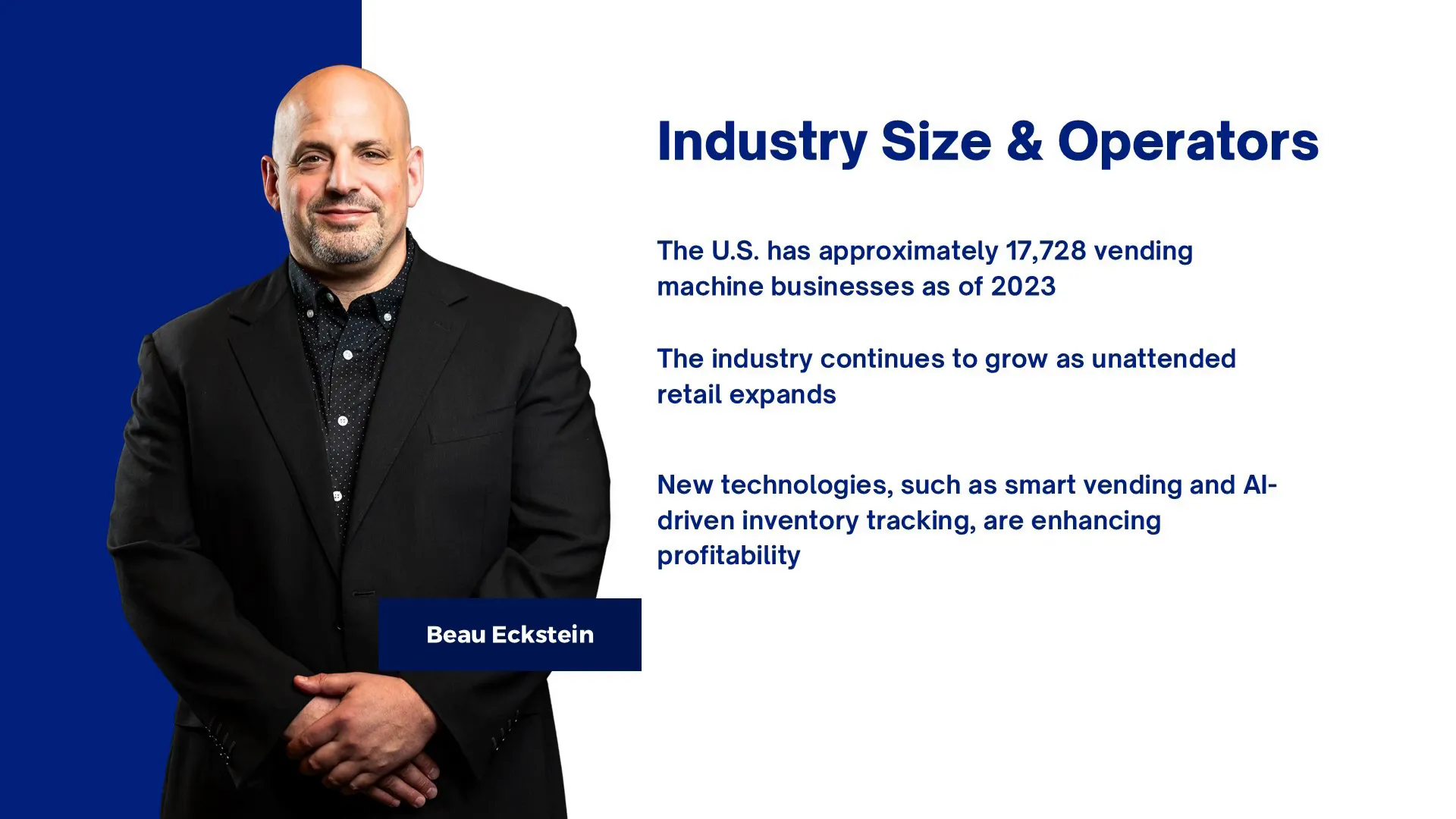
The Booming Vending Industry: A Growing Market Opportunity
The U.S. vending machine industry is thriving and expanding rapidly. As of 2023, the industry is valued at approximately $6.24 billion, with projections indicating it will nearly double to almost $12 billion in the near future. North America commands over 45% of the global vending market share, with close to 7 million vending machines operating in the U.S. alone as of 2020. Moreover, there are around 17,128 vending machine businesses nationwide. The industry’s growth is fueled by the rise of unattended retail, which you’ve likely noticed in airports, apartment complexes, hospitals, and more.
Unattended retail refers to automated shopping environments where customers serve themselves without the need for staff. This trend is reshaping the vending landscape, introducing new types of machines that offer everything from snacks and beverages to fresh food and even cosmetics. Smart vending machines now incorporate AI-driven inventory tracking and advanced payment systems, enhancing operational efficiency and profitability.
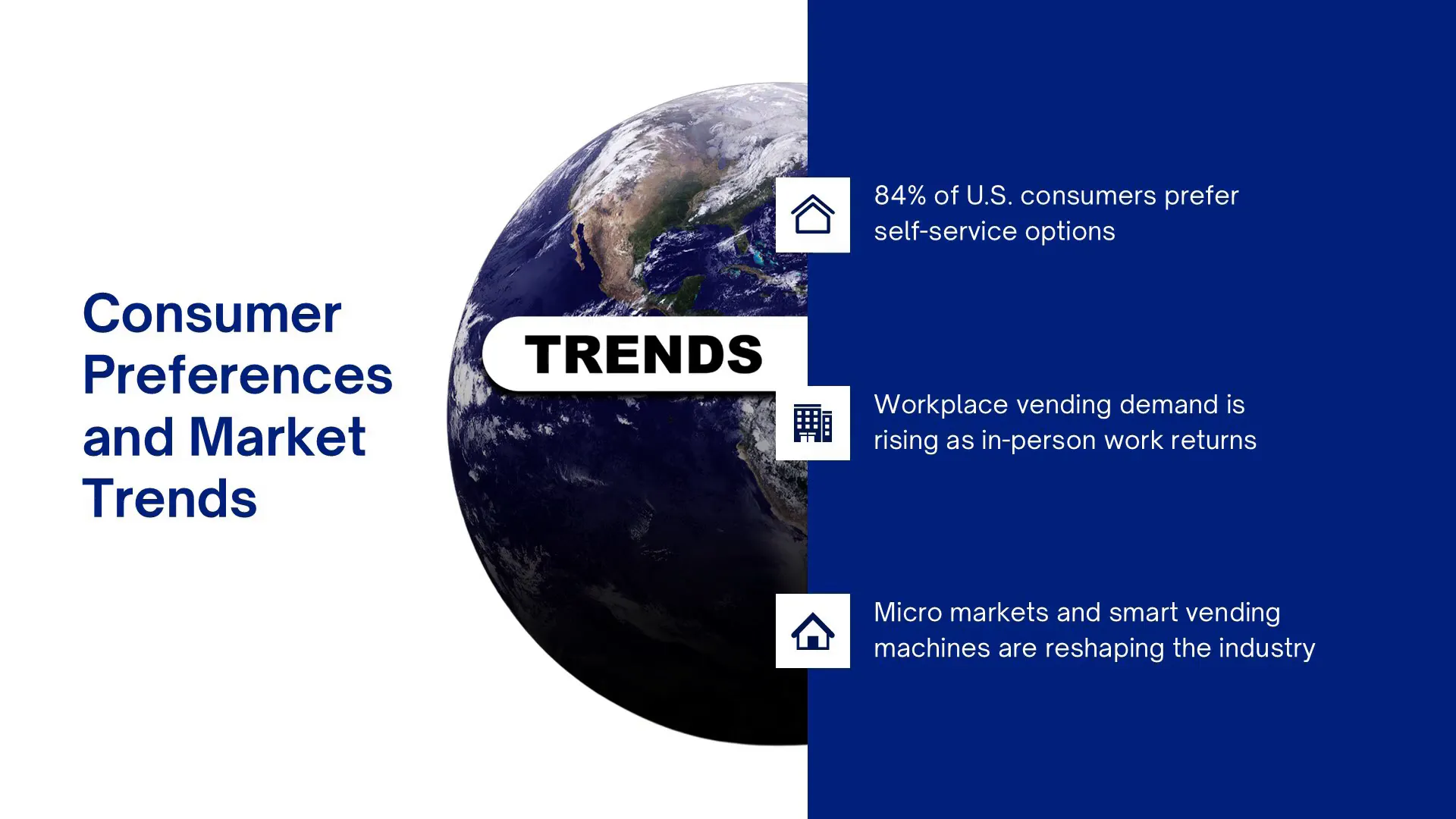
Why Vending Is the Ultimate Gateway Business for Aspiring Entrepreneurs
Many people want to break free from the “rat race” and become their own boss, but fear the complexity and risk of starting a traditional business. Vending offers a unique solution. It’s a business you can run semi-passively, often spending just about one hour per week per machine. This simplicity makes it perfect for those who want to start alongside their current W2 or corporate job.
Here’s why vending stands out as a gateway business:
- Low Startup Costs: Compared to franchises and other business acquisitions, vending requires a relatively modest initial investment.
- Flexible Operation: You can manage your machines remotely using your phone, tracking sales and inventory in real-time.
- Scalability: Start small and add more machines as you learn your market and grow your cash flow.
- Diverse Product Offerings: Beyond snacks and drinks, modern vending now includes healthy options, fresh food, ice cream, and specialty products like cosmetics.
- Support and Training: Many vending companies provide location scouting, initial machine placement, and ongoing coaching to ensure your success.
These factors combine to make vending an approachable, predictable, and profitable business venture.
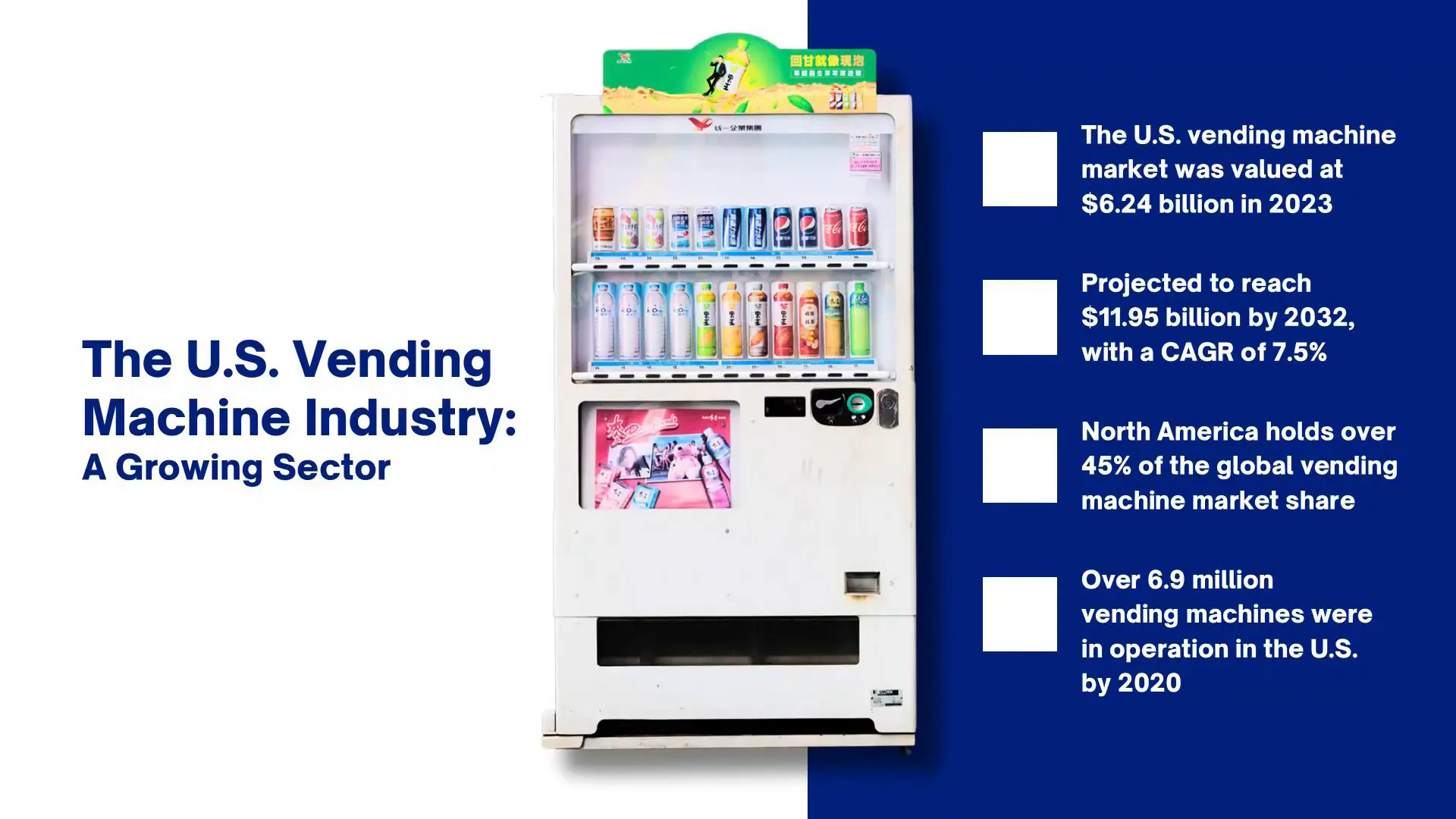
Unlocking Financing with SBA Loans: How to Start with Just 10% Down
One of the biggest hurdles in starting a business is financing. Fortunately, vending businesses qualify for SBA (Small Business Administration) loans, which are federally guaranteed and designed to help small business owners secure funding with favorable terms.
With SBA financing, you can fund up to 90% of your total startup costs, including equipment purchase, location build-out, and working capital. This means you can get started with as little as 10% equity injection. For example, if you purchase $100,000 worth of vending machines, your down payment could be as low as $10,000, plus some additional reserves.
Moreover, SBA loans often come with competitive interest rates and longer repayment terms than traditional loans, making monthly payments more manageable. This leverage allows you to scale your vending business faster than if you were paying cash upfront.
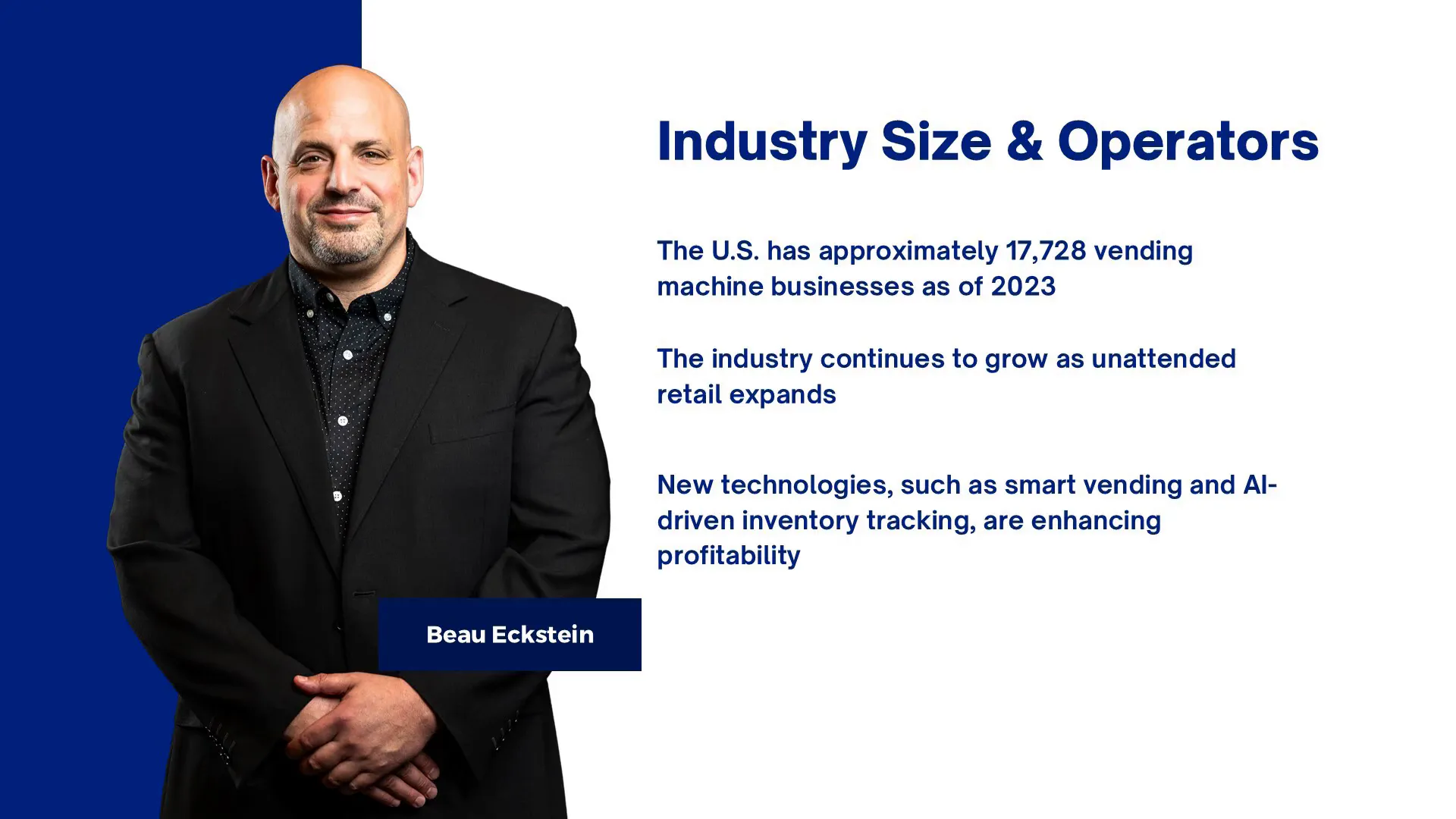
Technology and Industry Trends Driving Profitability
Vending machines today are far from the coin-operated snack dispensers of the past. The integration of new technologies has revolutionized the industry:
- Contactless Payments: Most machines now accept credit cards, Apple Pay, and other digital payment methods, reducing theft risk and increasing customer convenience.
- AI-Driven Inventory Management: Operators can track sales data remotely, ensuring machines are restocked efficiently and reducing downtime.
- Micro Markets and Smart Vending: These setups in workplaces and apartment complexes offer fresh, healthy food options with automated payment and warming capabilities.
- Health-Conscious Product Offerings: Consumers increasingly seek healthier snacks and beverages, prompting operators to diversify product lines beyond traditional chips and sodas.
These advancements not only improve customer experience but also enhance your ability to optimize inventory, reduce operational costs, and boost profitability.
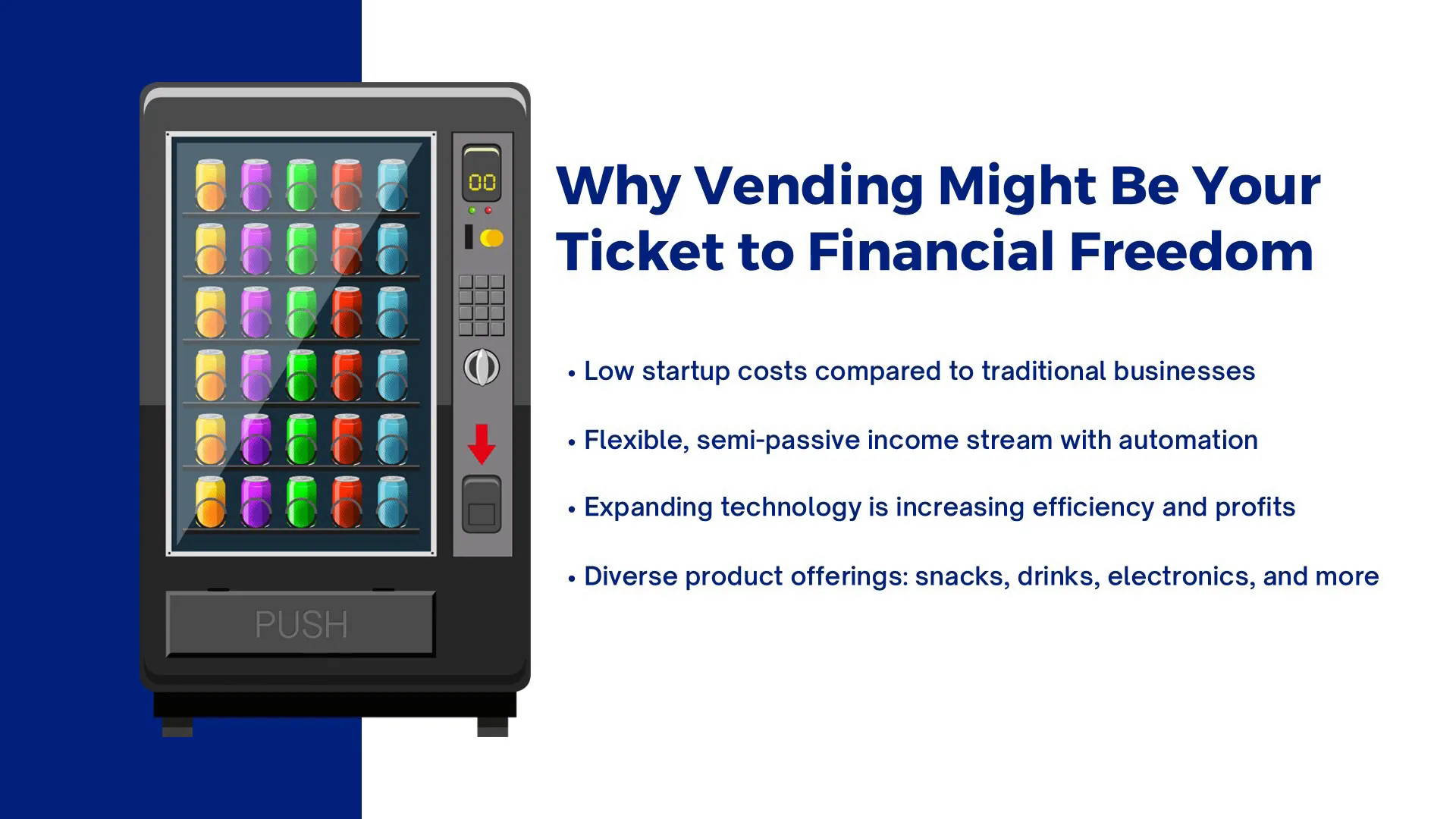
Overcoming Common Challenges in Vending
Like any business, vending has its challenges. Common issues include vandalism and theft. However, these risks are mitigated by strategic location selection and modern payment systems. For instance:
- Machines placed in secure locations such as schools, hospitals, or office buildings are less vulnerable to vandalism.
- Cashless payment options eliminate the need for cash in machines, reducing theft risk.
- General liability insurance further protects your investment.
Moreover, many vending companies assist with site selection and offer guarantees on machine performance. For example, some providers guarantee a minimum number of sales per week and will relocate machines that underperform, ensuring you maximize your income.
Tax Benefits and Financial Advantages of Owning a Vending Business
Owning a vending business also offers significant financial advantages, especially when it comes to taxes. Many people working W2 jobs pay a substantial amount in taxes, but the tax code favors small business owners through deductions like Section 179 depreciation.
Section 179 allows you to deduct the full purchase price of qualifying equipment (like vending machines) in the year you buy them, reducing your taxable income. This can offset some of your earned income, lowering your overall tax bill. Additionally, owning a small business opens up other tax write-offs related to expenses, retirement contributions, and even paying family members who work in the business.
For example, you can pay your children wages (up to certain limits) with tax advantages, turning your vending business into a legacy opportunity for your family.
Why Vending Outperforms Rental Properties for Cash Flow
Many aspiring investors consider rental properties for passive income, but vending machines can offer superior cash flow with less hassle. Here’s why:
- Leverage: SBA loans allow you to finance up to 90% of the vending business cost, enabling you to control more assets with less capital.
- Lower Risk: Rental properties face risks like vacancies, repairs, and tenant issues that can disrupt cash flow. Vending machines have fewer operating variables.
- Better Cash Flow: Vending machines generate steady income weekly, often exceeding the cash flow from similarly priced rental properties.
- Tax Advantages: Business ownership offers more tax write-offs than rental property ownership.
In my experience, the ideal wealth-building strategy combines owning an operating business like vending to generate cash flow, then investing those profits into long-term assets like real estate. I call this the Triangle Method: tax strategy, operating business, and real estate investment working together to build lasting wealth.
How to Transition from Your 9-to-5 Job with Vending
One of the biggest benefits of vending is its flexibility, allowing you to start part-time and gradually build toward full-time income. A good rule of thumb is that each vending machine requires about one hour of maintenance per week. So, if you own 10 machines, expect to spend roughly 10 hours per week managing your business.
As your vending business grows and your cash flow increases, you can approach the point where the income replaces a significant portion of your W2 salary—typically around 60-80%. This milestone enables you to transition out of your job without financial stress, provided you have saved six to twelve months of living expenses as a reserve.
Many operators also benefit from professional coaching and training that come with their vending business package, including location scouting, operational guidance, and ongoing support. This helps you avoid common pitfalls and accelerates your learning curve.
Additionally, vending can be a legacy business, where your children can get involved, learn entrepreneurship early, and build their own cash flow streams, setting them up for future success.
Getting Started: Your Next Steps Toward Business Ownership
If you’re ready to take the plunge, starting a vending business is easier than you might think. Partnering with specialized vending companies can eliminate one of the biggest hurdles: finding the right locations. These companies use data analytics to identify high-traffic spots such as schools, office buildings, and hospitals, placing machines where they will perform best.
Some providers even guarantee a minimum number of sales per machine per week and will relocate machines that underperform. You’ll also receive comprehensive training and ongoing coaching to maximize your success.
To qualify for SBA financing, you typically need a credit score around 680, manageable existing debt, and proof of income to support loan payments. If you meet these criteria, you can finance most of your startup costs and start generating income quickly.
For those who want personalized guidance, working with a Business Ownership Coach can help you navigate the selection, financing, and scaling process. Whether vending is your ideal business or not, a coach can assess your goals and recommend the best fit for your lifestyle and financial situation.
Conclusion: Why Vending Is the Perfect Gateway Business
Vending is a unique business opportunity that combines low startup costs, manageable time commitments, scalability, and strong financial incentives. It’s a perfect gateway business for aspiring entrepreneurs who want to escape the 9-to-5 lifestyle and build cash flow with minimal risk.
With the power of SBA financing, advanced technology, and expert coaching, you can start your vending business with as little as 10% down and grow it on your schedule. The tax benefits and steady income potential make it a smart alternative to traditional investments like rental properties.
Whether you’re looking for a side hustle or a full-time business, vending offers a flexible pathway to financial freedom. As a Business Ownership Coach, my mission is to help thousands of aspiring entrepreneurs find and fund their ideal business, and vending is often the ideal first step.
If you’re ready to explore this opportunity or want to learn about other business models, don’t hesitate to seek guidance and take the first step toward business ownership today.
Your journey to financial freedom could start with a simple vending machine.
